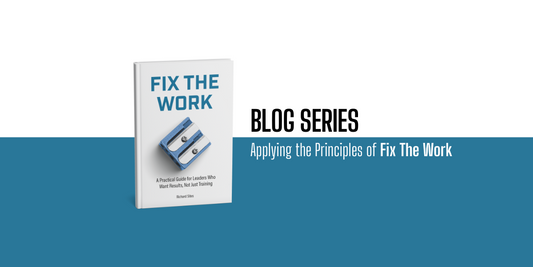Skills Matter, But Empathy Matters More
Richard SitesShare This Post
We talk a lot about assembling instructional design teams. Usually, these conversations revolve around ensuring the right mix of skillsets—designers, developers, writers, technologists. It's obvious that diversity of skills and perspectives is critical. A team heavy on developers and lacking designers is destined to create a perfectly functional but hopelessly unengaging experience. Conversely, an abundance of designers without technical prowess will struggle to implement their visions.
However, there's a deeper layer we often neglect: the power of empathy within your instructional team.
Empathy isn’t just a nice-to-have soft skill. It’s absolutely essential. Instructional design is, after all, a fundamentally human endeavor. We aren’t just building products; we’re crafting experiences. We’re creating journeys not only for learners but also for stakeholders, subject matter experts (SMEs), designers, developers, and reviewers.
When assembling your instructional design team, ask yourself: beyond technical competencies, does each team member have the capacity to genuinely understand and connect with all stakeholders involved in the process? Can they imagine themselves in the shoes of learners, clients, SMEs, and even fellow teammates?
An instructional designer who can expertly use authoring tools but lacks the empathy to grasp learners' frustration might build functional but soulless experiences. A developer who doesn't consider the instructional designer's intention might deliver a flawless module technically, yet still miss the project's educational goal entirely. And a designer who can’t empathize with a client’s pressures or concerns risks creating tension and misunderstanding.
Empathy, more than any skill, bridges gaps between all parties involved. Empathetic instructional professionals listen actively, collaborate effectively, and consistently build trust. They understand that stakeholders and learners alike crave positive, meaningful interactions. These team members intuitively craft experiences—both instructional and interpersonal—that resonate deeply.
Of course, empathy alone won’t magically create exceptional instructional products. But without empathy, even teams overflowing with talent can falter dramatically, weighed down by misunderstandings and poor communication.
So, yes—prioritize skill diversity, but prioritize empathy even higher. Ensure your instructional team includes professionals who not only complement each other technically but also enhance your team's emotional intelligence. The ability to authentically connect with learners, SMEs, stakeholders, and colleagues isn’t a nice-to-have—it's essential.
The best instructional experiences start from within your team. Empathy creates better teams, better relationships, and ultimately, better outcomes.




